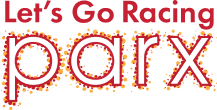Rob Wheeler’s father was a blacksmith. So was his uncle. And his brother.
Known universally around the track as “Wheels”, Rob got started in the family profession when he was 17. He’s still going strong at 64, appearing almost every day at Parx to make sure the horses for his clients have the proper shoes. He sleeps most nights in a camping trailer a mile from the track. Doesn’t want to be late.
“It’s okay,” Wheeler said. “Don’t leak. Got heat.”
And he’s always close to the horses.
“I had to serve a three-year apprenticeship,” said Wheeler, talking in the Parx Recreation building in the track’s stable area.
Even with that, he wasn’t sure he could shoe horses the right way when he began.
“You’ve got all this pressure on you because you’re young and you just started,” Wheeler said. “If you make one mistake, everybody will go in the (track) kitchen and say ‘don’t use that guy’ because he’ll (mess) your horse up.”
Wheeler’s 47 years on the job are a testament to his proficiency. A horse’s feet are critical to performance. And if something is off, the horse will perform at less than his best. Wheeler does his very best to make sure that does not happen.
His job is just one of dozens of professions that employ thousands at the Commonwealth’s race tracks and horse farms and contributes to the state’s economic engine.
Shoeing a horse is delicate business. It can also be dangerous as 1,000-pound animals can be cantankerous, especially if you are messing with their feet.
Wheeler was born in the Ft. Meade Army Camp in Maryland when his dad was serving in Korea. The camp was five miles from Laurel Park where young Rob first spent time around horses.
His father and uncle worked for the Big Four trainers in Maryland – King Leatherbury, Buddy Delp, Dick Dutrow and John Tammaro. Their credibility helped establish the young “Wheels”.
Wheeler has been all over, but these days he works on horses for Parx trainers Mike Pino, Roger Brown and Juan Vazquez, a total of around 75 horses. He worked for trainer Allen Iwinski at Parx before that. He calls Iwinski his personal favorite.
Horses typically get shod once a month, a little less in the winter, according to Wheeler because their feet don’t grow as much in the cold weather.
The best way to understand horses’ feet is to think about your fingernails. They are always growing. Wheeler’s job is to make sure they are level for the shoes and that the shoes fit correctly when he nails them on. Too small is especially problematic.
He was badly injured twice. His hand was “tread on” and he did not work for two years. When he picked up a bail of straw to throw into a shed, he “ripped all the muscles in my right side and collapsed my pelvis”. He missed two more years, but he always came back.
His father became a very good trainer after his blacksmith days were done. And then he retired.
“I watched my dad quit, and in a year and a half, he was dead,” Wheeler said.
So he has no plans to stop, not now, not ever.
On a typical morning, Wheeler might shoe three or four horses. Over a month, he gets to all of them in his care. He gets $140 per horse. The shoes, nails and supplies cost $45. He will spend another $10 for somebody to hold the horse while he is putting the shoes on. He has liability insurance so his margin is tight like so many race track workers. Bottom line after expenses, he makes around $70 per horse.
“I made a mess of money when I was younger doing 10 a day,” Wheeler said.
Over time, Wheeler has had six apprentices himself.
“I made them serve the three years,” Wheeler said. “You’re getting on-the-job training, but when you come out of that apprenticeship, you’re not really prepared for every situation you’re going to face. If you don’t do the three years, you’ve got no clue what to do.”
But Rob Wheeler knew what to do when he got his start. All these years later, he still knows.






